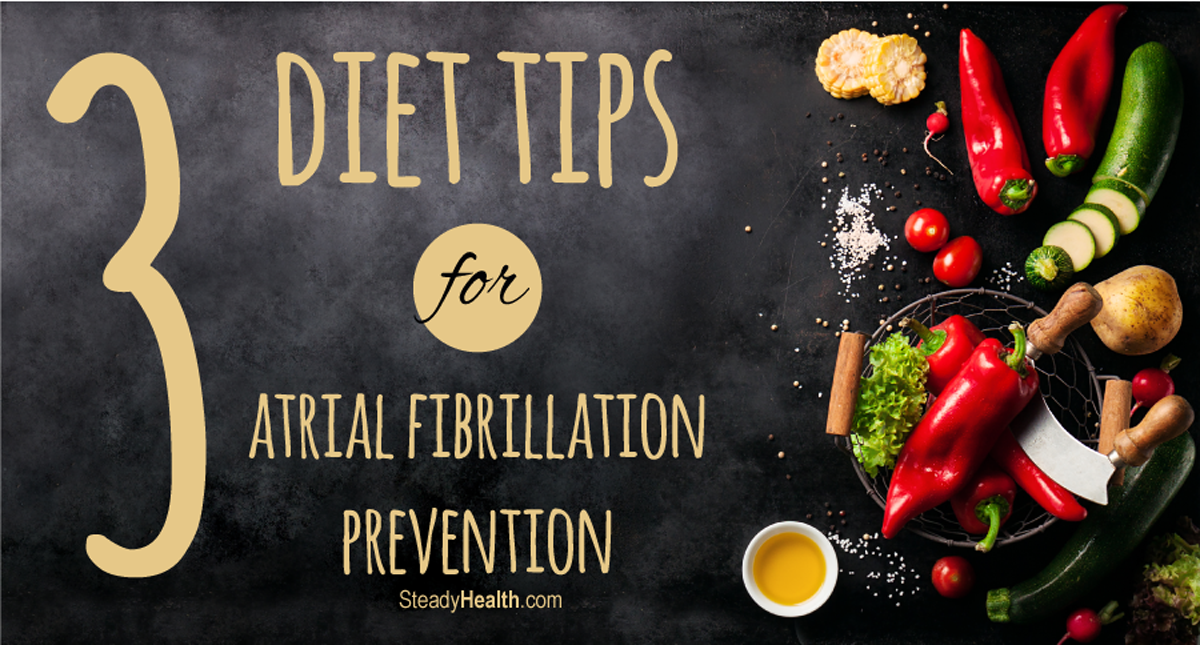Atrial fibrillation is a disease that manifests from a multi-factorial medical history and becomes more likely as patient ages. [1] The treatment of atrial fibrillation can come in all shapes and sizes and can range from medications prescribed by your cardiologist or cardiac surgeon to undergoing cardiac ablation in order to return your heart to a normal sinus rhythm [2]. Daily medications and surgical ablations can alleviate the symptoms but they are not guaranteed to stop atrial fibrillation entirely [3]. Medications can also carry a large panel of dangerous side effects that can make them more harmful than good [4].

Caffeine: Should I put down the coffee?
A common urban legend circulating through the grapevine is that patients that suffer from any type of arrhythmia should make sure to abstain from coffee intake. The average American drinks 3 cups of coffee daily and their coffee consumption is one of the first lifestyle changes that will be recommended from family, friends and even some medical professionals [5].
One study even analyzed coffee intake under the most strenuous circumstances where 50 patients who had already had a fibrillation episode underwent a heart study before and after drinking coffee without any irregular activity in any patients afterward [7].
Even if coffee is determined to be safe based on countless studies, caffeine is not guaranteed to be a safe substance when diagnosed with atrial fibrillation.
What about energy drinks?
Energy drinks represent a very substantial slice of beverages consumed by the general population with up to 50% of teens reporting to drink them on a daily basis [8]. True atrial fibrillation is a disease more likely seen in an elderly population but as these patients age, energy drinks are creeping into a larger section of the population. It is estimated that the consumption of energy drinks have increased by around 300 percent in people over the age of 40 [9]. Currently, the Food and Drug Administration (FDA) does not regulate the marketing and composition of these energy drinks and beverages can vary greatly on the caffeine concentrations.
One study found that a 14-year old boy who drank an energy drink was subsequently admitted to the hospital because of an atrial fibrillation [10]. If you are suffering from atrial fibrillation, do not drink energy drinks.
Alcohol: Can I still drink with AFib.?
Unlike caffeine, there is no ambiguity over the link between alcohol consumption and the subsequent develop of atrial fibrillation in patients. When dealing with your atrial fibrillation treatment, do not drink alcohol.
One study viewed the link between alcohol and atrial fibrillation in 381 patients. All participants were subjected to invasive heart studies and it was determined that the heavier the drinker, the more likely he would have an atrial flutter [11]. Atrial flutters can progress into atrial fibrillation and this leads the medical community to strongly recommend the abstinence from alcohol in all patients that suffer any type of arrhythmia or fibrillation claiming that alcohol will worsen your cardiac disease.
Magnesium Supplementation: Is it a Good Idea?
When managing your atrial fibrillation, another trade secret that cardiologists like to utilize for your therapy is magnesium-based medications in order reduce the risk of further atrial fibrillation.
Cardiac surgery is a common precursor to atrial fibrillation and patients are normally given supplemental magnesium in order to reduce the post-operative risk. In one such study, 2490 patients were examined and the proportion of patients developing postoperative atrial fibrillation dropped from 28 percent in the control group to 18 percent in the treatment group [12].
Magnesium is found in a multitude of sources and it will be easy for patients to implement them into their diets. The highest concentration of magnesium can be found in:
- green vegetables,
- nuts, seeds,
- unprocessed cereals.
Should that fail to satisfy your taste buds,
- legumes,
- fruits,
- meats, and
- fish
have an intermediate level of magnesium. Making sure you have a diet rich in these common high-magnesium foods will be a good supplement to help reduce your atrial fibrillation symptoms. [13]
- Photo courtesy of SteadyHealth.com


Your thoughts on this